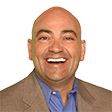October Is National Financial Planning Month
Saving is a great start, but planning to reach your financial goals is even better.

Profit and prosper with the best of Kiplinger's advice on investing, taxes, retirement, personal finance and much more. Delivered daily. Enter your email in the box and click Sign Me Up.
You are now subscribed
Your newsletter sign-up was successful
Want to add more newsletters?

Delivered daily
Kiplinger Today
Profit and prosper with the best of Kiplinger's advice on investing, taxes, retirement, personal finance and much more delivered daily. Smart money moves start here.

Sent five days a week
Kiplinger A Step Ahead
Get practical help to make better financial decisions in your everyday life, from spending to savings on top deals.

Delivered daily
Kiplinger Closing Bell
Get today's biggest financial and investing headlines delivered to your inbox every day the U.S. stock market is open.

Sent twice a week
Kiplinger Adviser Intel
Financial pros across the country share best practices and fresh tactics to preserve and grow your wealth.

Delivered weekly
Kiplinger Tax Tips
Trim your federal and state tax bills with practical tax-planning and tax-cutting strategies.

Sent twice a week
Kiplinger Retirement Tips
Your twice-a-week guide to planning and enjoying a financially secure and richly rewarding retirement

Sent bimonthly.
Kiplinger Adviser Angle
Insights for advisers, wealth managers and other financial professionals.

Sent twice a week
Kiplinger Investing Weekly
Your twice-a-week roundup of promising stocks, funds, companies and industries you should consider, ones you should avoid, and why.

Sent weekly for six weeks
Kiplinger Invest for Retirement
Your step-by-step six-part series on how to invest for retirement, from devising a successful strategy to exactly which investments to choose.
Are you saving for retirement? Great. Are you planning for retirement? That is even better. Planning for your retirement and other long-range financial goals is an essential step—one that could make achieving those goals easier.
Saving without investing your savings isn't enough. Since interest rates are so low today, money in a typical savings account barely grows. It may not even grow enough to keep up with inflation, leaving the saver at a long-term financial disadvantage.
Very few Americans retire on savings alone. Rather, they invest some of their savings and retire mostly on the accumulated earnings those invested dollars generate over time.
From just $107.88 $24.99 for Kiplinger Personal Finance
Become a smarter, better informed investor. Subscribe from just $107.88 $24.99, plus get up to 4 Special Issues

Sign up for Kiplinger’s Free Newsletters
Profit and prosper with the best of expert advice on investing, taxes, retirement, personal finance and more - straight to your e-mail.
Profit and prosper with the best of expert advice - straight to your e-mail.
Investing without planning usually isn't enough. Most people invest with a general idea of building wealth, particularly for retirement. The problem is that too many of them invest without a plan. They are guessing how much money they will need once they leave work, and that guess may be way off. Some have no idea at all.
Growing and retaining wealth takes more than just investing. Along the way, you must plan to manage risk and defer or reduce taxes. A good financial plan—created with the assistance of an experienced financial professional—addresses those priorities while defining your investment approach. It changes over time, to reflect changes in your life and your financial objectives.
With a plan, you can set short-term and long-term goals and benchmarks. You can estimate the amount of money you will likely need to meet retirement, college, and health care expenses. You can plot a way to wind down your business or exit your career with confidence. You can also get a good look at your present financial situation—where you stand in terms of your assets and liabilities, the distance between where you are financially and where you would like to be.
Last year, a Gallup poll found that just 38% of investors had a written financial plan. Gallup asked those with no written financial strategy why they lacked one. The top two reasons? They just hadn't taken the time (29%), or they simply hadn't thought about it (27%).
October is National Financial Planning Month—an ideal time to plan your financial future. The end of the year is approaching and a new one will soon begin, so this is the right time to think about what you have done in 2016 and what you could do in 2017. You might want to do something new; you may want to do some things differently. Your financial future is in your hands, so be proactive and plan.
Greg O'Donnell's mission over the course of three decades has been to guide people to pursue and maintain a healthy financial life plan that accomplishes their goals.
Investment advice offered through O'Donnell Financial Services, LLC, a registered investment advisor. O'Donnell Financial Group, Inc. and O'Donnell Financial Services, LLC are not affiliated. Licensed by the California Bureau of Real Estate #00971579, NMLS #298004, not all applicants will qualify, rates subject to change. Know before you owe. Insurance offered by Gregory C. O'Donnell, California Insurance #0B87978.
Profit and prosper with the best of Kiplinger's advice on investing, taxes, retirement, personal finance and much more. Delivered daily. Enter your email in the box and click Sign Me Up.

Greg O'Donnell is the CEO and founder of O'Donnell Financial Group (www.ODonnellFinancialGroup.com). His mission over the course of three decades has been to guide people to pursue and maintain a healthy financial life plan that accomplishes their goals.
-
 Ask the Tax Editor: Federal Income Tax Deductions
Ask the Tax Editor: Federal Income Tax DeductionsAsk the Editor In this week's Ask the Editor Q&A, Joy Taylor answers questions on federal income tax deductions
-
 States With No-Fault Car Insurance Laws (and How No-Fault Car Insurance Works)
States With No-Fault Car Insurance Laws (and How No-Fault Car Insurance Works)A breakdown of the confusing rules around no-fault car insurance in every state where it exists.
-
 7 Frugal Habits to Keep Even When You're Rich
7 Frugal Habits to Keep Even When You're RichSome frugal habits are worth it, no matter what tax bracket you're in.
-
 For the 2% Club, the Guardrails Approach and the 4% Rule Do Not Work: Here's What Works Instead
For the 2% Club, the Guardrails Approach and the 4% Rule Do Not Work: Here's What Works InsteadFor retirees with a pension, traditional withdrawal rules could be too restrictive. You need a tailored income plan that is much more flexible and realistic.
-
 Retiring Next Year? Now Is the Time to Start Designing What Your Retirement Will Look Like
Retiring Next Year? Now Is the Time to Start Designing What Your Retirement Will Look LikeThis is when you should be shifting your focus from growing your portfolio to designing an income and tax strategy that aligns your resources with your purpose.
-
 I'm a Financial Planner: This Layered Approach for Your Retirement Money Can Help Lower Your Stress
I'm a Financial Planner: This Layered Approach for Your Retirement Money Can Help Lower Your StressTo be confident about retirement, consider building a safety net by dividing assets into distinct layers and establishing a regular review process. Here's how.
-
 The 4 Estate Planning Documents Every High-Net-Worth Family Needs (Not Just a Will)
The 4 Estate Planning Documents Every High-Net-Worth Family Needs (Not Just a Will)The key to successful estate planning for HNW families isn't just drafting these four documents, but ensuring they're current and immediately accessible.
-
 Love and Legacy: What Couples Rarely Talk About (But Should)
Love and Legacy: What Couples Rarely Talk About (But Should)Couples who talk openly about finances, including estate planning, are more likely to head into retirement joyfully. How can you get the conversation going?
-
 How to Get the Fair Value for Your Shares When You Are in the Minority Vote on a Sale of Substantially All Corporate Assets
How to Get the Fair Value for Your Shares When You Are in the Minority Vote on a Sale of Substantially All Corporate AssetsWhen a sale of substantially all corporate assets is approved by majority vote, shareholders on the losing side of the vote should understand their rights.
-
 How to Add a Pet Trust to Your Estate Plan: Don't Leave Your Best Friend to Chance
How to Add a Pet Trust to Your Estate Plan: Don't Leave Your Best Friend to ChanceAdding a pet trust to your estate plan can ensure your pets are properly looked after when you're no longer able to care for them. This is how to go about it.
-
 Want to Avoid Leaving Chaos in Your Wake? Don't Leave Behind an Outdated Estate Plan
Want to Avoid Leaving Chaos in Your Wake? Don't Leave Behind an Outdated Estate PlanAn outdated or incomplete estate plan could cause confusion for those handling your affairs at a difficult time. This guide highlights what to update and when.